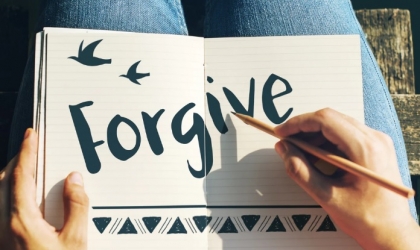The Power of Forgiveness: A Path to Inner Peace
Forgiveness is often considered a virtue, a moral high ground that only the most enlightened can reach. But what if we told you that forgiveness is not just about others, but primarily about you? What if embracing forgiveness could lead to a profound sense of inner peace, mental clarity, and emotional resilience? In this blog post, we will explore the multifaceted nature of forgiveness, its benefits, and practical steps to incorporate it into your life.
Understanding Forgiveness
Forgiveness is the conscious, deliberate decision to release feelings of resentment or vengeance toward someone who has harmed you. It doesn’t mean forgetting, condoning, or excusing the offense. Rather, it’s about acknowledging the hurt and choosing to let go of the emotional burden.
The Misconceptions About Forgiveness
One of the biggest misconceptions about forgiveness is that it’s a sign of weakness. On the contrary, forgiveness requires immense strength and courage to forgive. Another common myth is that forgiveness equates to reconciliation. While forgiveness can lead to mended relationships, it’s primarily an internal process that doesn’t necessarily involve the offender.
The Benefits of Forgiveness
Forgiveness offers numerous benefits that enhance our physical, emotional, and mental well-being.
1. Emotional Freedom
Holding onto grudges and resentment can weigh heavily on your heart. Forgiveness liberates you from these negative emotions, providing a sense of relief and emotional freedom. It allows you to move forward without the baggage of past hurts.
2. Improved Mental Health
Studies have shown that forgiveness is linked to lower levels of depression, anxiety, and stress. By forgiving, you reduce the mental load, making space for more positive and constructive thoughts. This mental clarity can significantly improve your overall well-being.
3. Better Physical Health
Chronic anger and resentment can lead to a host of physical ailments, including high blood pressure, weakened immune system, and increased risk of heart disease. Forgiveness, on the other hand, promotes healthier physiological states, reducing these risks.
4. Enhanced Relationships
Forgiveness fosters empathy and understanding, crucial components for healthy relationships. It allows you to build stronger connections, mend broken trust, and improve your ability to communicate effectively and compassionately.
Practical Steps to Forgiveness
Forgiving someone, especially when the hurt is deep, is not an overnight process. It requires time, effort, and a willingness to heal. Here are some practical steps to help you on your journey to forgiveness:
1. Acknowledge the Hurt
The first step in forgiving is recognizing and acknowledging the pain caused by the offense. Denying or suppressing your emotions can make the healing process more difficult. Allow yourself to feel the hurt and understand its impact on your life.
2. Reflect on the Situation
Take time to reflect on the incident and try to see it from a broader perspective. This doesn’t mean justifying the wrong, but understanding the context can sometimes reduce the intensity of the hurt.
3. Empathize with the Offender
Empathy doesn’t mean condoning the actions but trying to understand what might have driven the person to act in such a manner. Has the offender attempted to express a sincere apology? Taking time to hear them out, or placing yourself in their shoes can sometimes soften your anger and open the door to forgiveness.
4. Decide to Forgive
Forgiveness is a conscious choice. Decide that you want to forgive and let go of the resentment. This decision sets the intention for your healing journey.
5. Take Action
Express your forgiveness. This could be through a letter, a conversation, or even a personal ritual. The act of expressing your forgiveness solidifies your decision and helps release the emotional burden.
6. Seek Support
Sometimes, the path to forgiveness can be challenging to navigate alone. Seeking support from friends, family, or a therapist can provide you with the necessary guidance and encouragement.
Forgiving Yourself
Forgiveness is not just about others; it’s also about forgiving yourself. Self-forgiveness is essential for personal growth and self-compassion. Holding onto self-blame and guilt can be just as damaging as harboring resentment toward others. Acknowledge your mistakes, learn from them, and give yourself the grace to move forward.
The Role of Mindfulness in Forgiveness
Mindfulness practices, such as meditation and deep breathing, can play a significant role in the forgiveness process. Mindfulness helps you stay present, manage your emotions, and cultivate a non-judgmental attitude towards yourself and others. It creates a space for reflection and healing, making it easier to let go of grudges.
Stories of Forgiveness
Hearing about others’ forgiveness journeys can be incredibly inspiring and provide you with the strength to pursue your path. One famous example is that of Nelson Mandela, who forgave his oppressors after 27 years of imprisonment, demonstrating the profound impact of forgiveness on personal and societal levels.
Another poignant story is that of Eva Kor, a Holocaust survivor who publicly forgave the Nazis. Her act of forgiveness brought her immense peace and became a powerful testament to the healing power of letting go.
Conclusion
Forgiveness is a transformative process that offers profound benefits for your emotional, mental, and physical health. It’s a gift you give yourself, allowing you to live a life free from the shackles of past hurts. While it’s not always easy, the journey to forgiveness is worth the effort, leading you to a path of inner peace and personal growth.
Remember, forgiveness is a personal journey. It doesn’t have to be rushed or forced. Take your time, be gentle with yourself, and embrace the healing power of letting go.



















